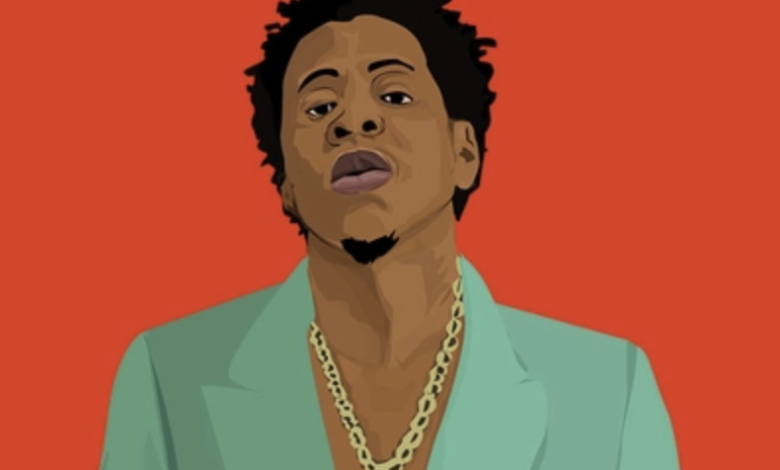Jay-Z Created a Hip-Hop Path to Luxury Influence


The musician and entrepreneur’s champagne deal with LVMH stems from his pioneering approach to business for 25 years.”
It was another busy week for Jay-Z, the hip-hop musician, and entrepreneur. On Monday, February 22, it unveiled an agreement with LVMH to extend its Armand de Brignac champagne internationally. The next day, Oatly, the Swedish vegan milk group in which he has invested, took his first step towards an initial public offering of $ 10 billion.
Jay-Z has other duties to occupy besides his own music. He still runs Roc Nation, a music and sports talent agency that counts Rihanna among its clients. He is also the “visionary leader” of a specialized company supported by Roc Nation which acquired two Californian cannabis groups in November. Etc.
This year is the 25th anniversary of Jay-Z’s debut album Reasonable doubt, released on his own label Roc-A-Fella Records. The Brooklyn-born rapper as Shawn Carter and declared the first hip-hop billionaire by Forbes magazine in 2019, has since poured its talent and wealth into so many businesses that it’s easy to lose track.
Some lasted and some didn’t, but Jay-Z was ahead of his time in business in a way that is only clear now. “Put me anywhere on God’s Green Earth, I will triple my value,” he once struck. The agreement with LVMH, by virtue of which the world’s leading luxury group took 50% of Armand de Brignac – the champagne “As de pique” praised in its words – is proof of this.
Also Read: How Tom Hanks and Wife Survived COVID-19
He learned early on from Damon Dash, the co-founder of Roc-A-Fella impresario, that a celebrity could not only be paid to perform songs or endorse products but could also own the rights to them. of them. It was a dazzling opportunity for the early hip-hop artists, as they walked, rhyming luxury advocates, renting everything from Mercedes-Maybach limousines to Cristal champagne.
Jay-Z accepted an offer from Universal Music to conduct Roc-A-Fella’s parent Def Jam in 2004 in part because it allowed him to regain the rights to his master recordings – ultimate ownership of his work. “I could tell my son or my daughter. . . “Here is my entire collection of recordings. I own them, they are yours, ”he said.
It was nifty even then, but musicians’ interest in owning their masters only fully emerged in the age of streaming, making it easy to listen to all of an artist’s work. . Taylor Swift and Kanye West, who produced and recorded for Roc-A-Fella, have required their masters are returning – but Jay-Z already has his.
He launched his own line of sneakers – S. Carter for Reebok – in 2003, following a model, basketball player Michael Jordan. But the turning point in his attitude towards endorsement came in 2006 when a French executive of Louis Roederer, maker of Cristal champagne touted by rappers, indicated that he prefers not to be associated with hip-hop.
Jay-Z was quick to denounce the comments as racist and said: “[I] will no longer support any of its products, ”says Zack O’Malley Greenburg in State of mind of the empire, a book about Jay-Z companies. He was as good as his word: Soon after, he appeared in a music video rejecting a Crystal server’s offer in favor of a metal bottle of Ace of Spades.
Also Read: Nigerian Afrobeat Pioneer and “Greatest Drummer Who Ever Lived”, Tony Allen, Dies at 79
His financial interest in Armand de Brignac, a wine produced by the Cattier family in the Montagne de Reims, was obscure at the time – he seems to have thought it best not to be seen peddling his own wares. But it was clearly worth it and in 2014 he acquired the rights to the brand from his US distributor Sovereign Brands.
This makes this week’s deal meaningful in two ways. This indicates that he has managed to feed his prestige drink, which sells for $ 300 a bottle or more, through the wedding pandemic and the nightclub drought. It also shows that French luxury houses are no longer afraid of rap: they now want to partner with black artists.
It took a long time. “We come from the generation of blacks who finally understood: no one is going to help us. . . Even our fathers did not stick around ”, he wrote in his autobiography Decoded. “Success [meant] self-reliance, be a boss, not a dependent. The competition was not about greed – or not just about greed. It was a question of survival.
Rihanna, whom he personally signed with Def Jam at the age of 17, learned of his philosophy by launching his Fenty Beauty brand with LVMH and his Savage X Fenty lingerie line. Like him, she also had disappointments – the fashion house she formed with LVMH in 2019 suspended its ready-to-wear collections in February.
But occasional failures are part of the hustle and bustle, and the striking thing about Jay-Z isn’t his missteps, but the precision with which he sensed how the world would evolve. Every Instagram influencer who supports cosmetics, fashion, or travel owes something to the performative consumption initiated by hip-hop.
“The rapper’s character is essentially a vanity, a first-person literary creation,” he observed of his original transformation from Shawn Carter to Jay-Z. He understood earlier than others the need to own a performance and to play – to be the brand, not to work for one. It requires champagne.
This article was first published in the Financial Times.







